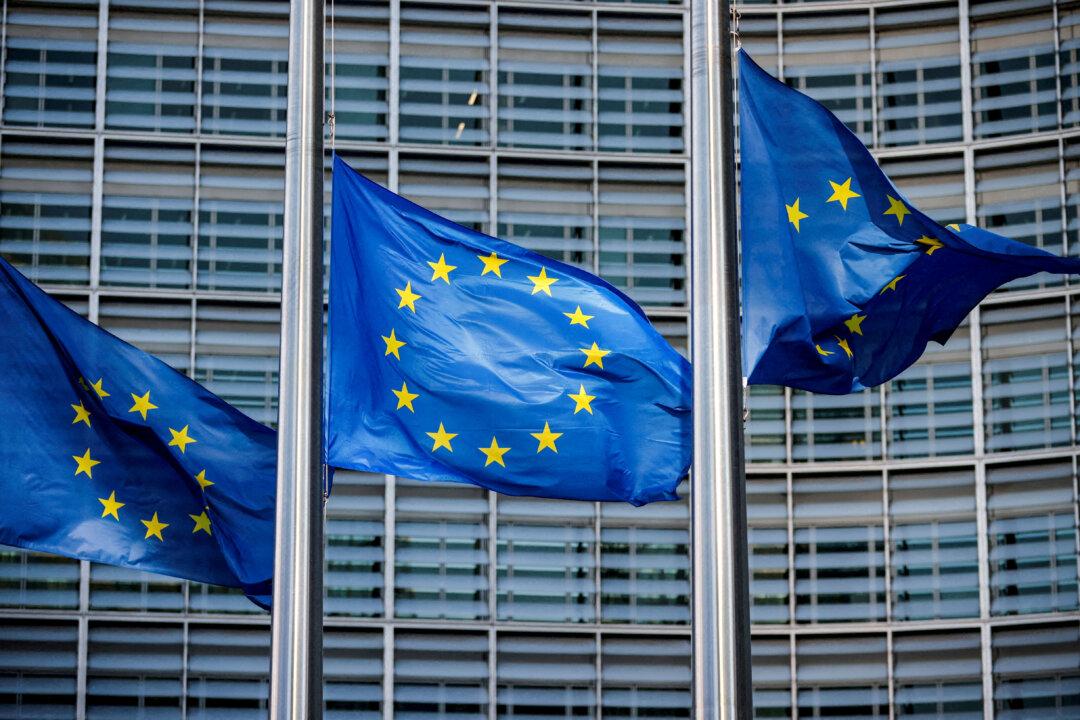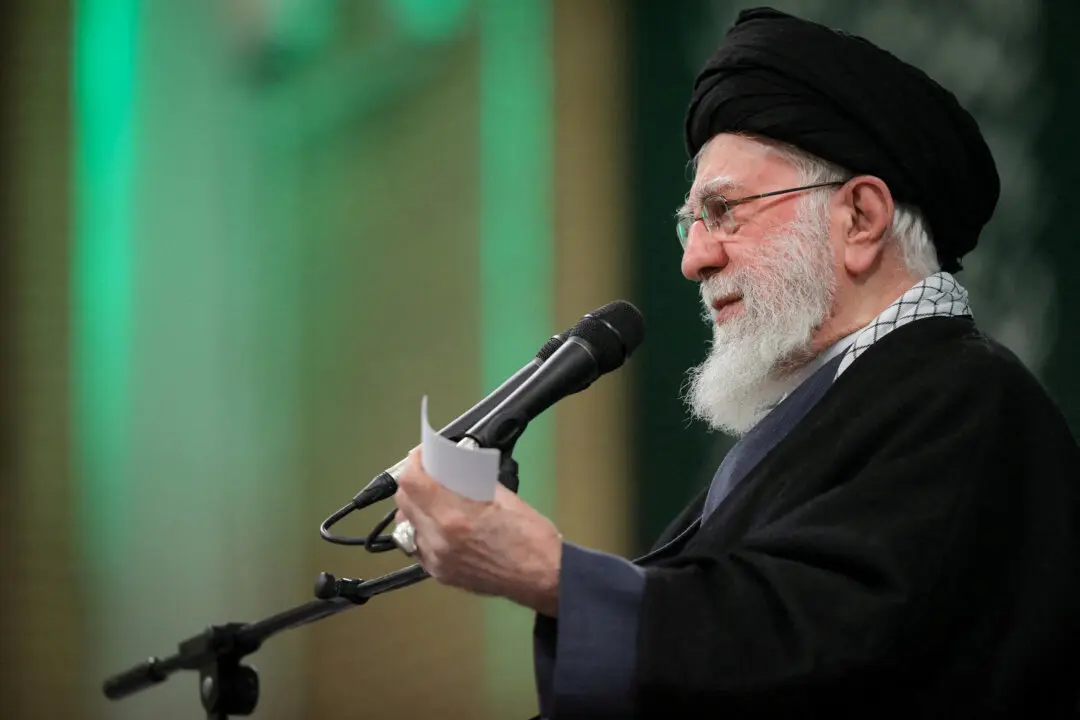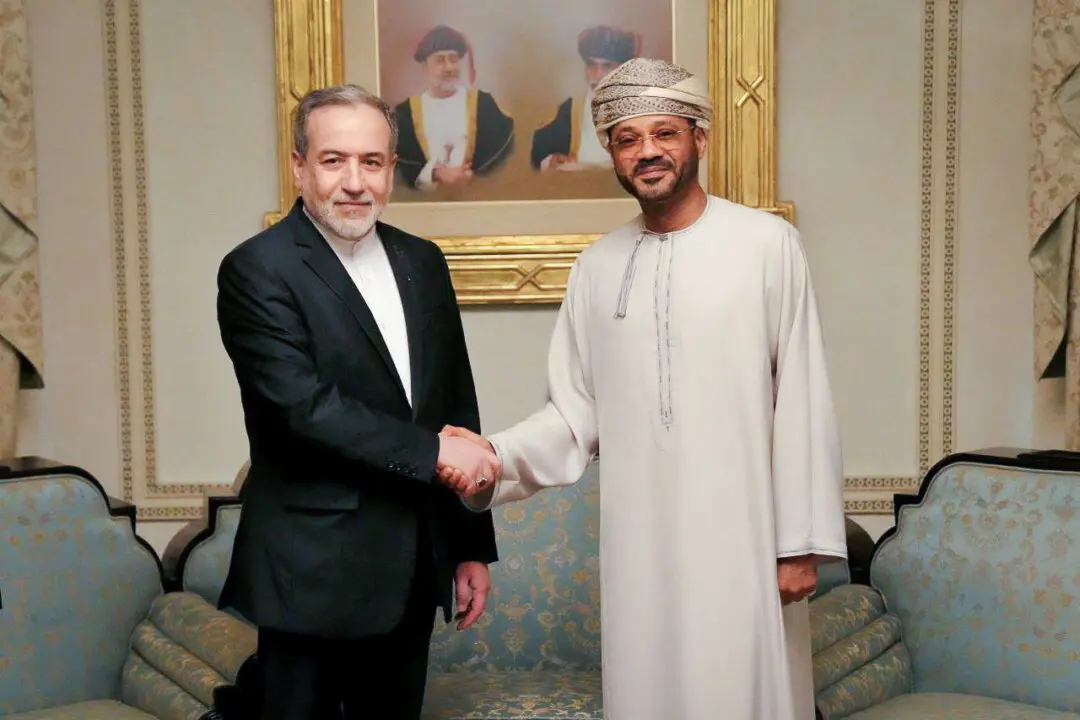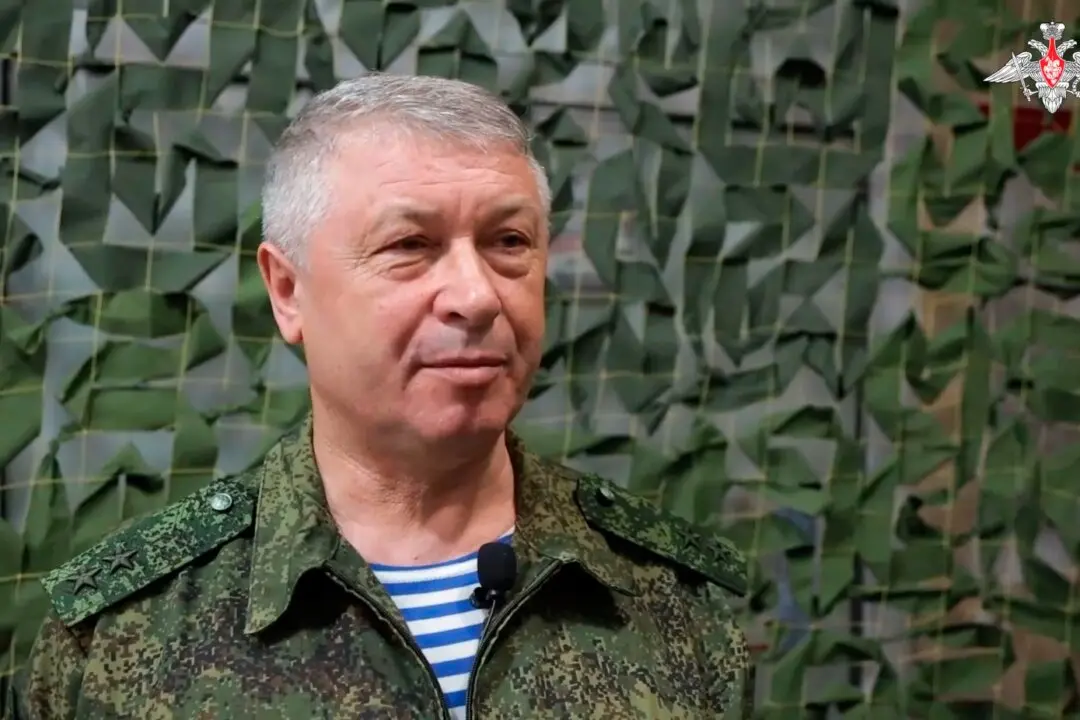
European Union flags fly outside the European Commission headquarters in Brussels on March 1, 2023. Johanna Geron/Reuters
The European Union on Feb. 19 agreed on its
16th package of sanctions against Russia over the war in Ukraine.
EU envoys decided on a raft of new bans—including primary aluminum imports and sales of gaming consoles—and the listing of 73 shadow-fleet vessels.





